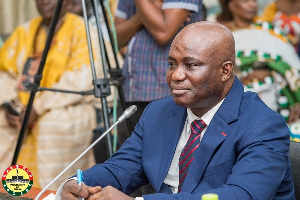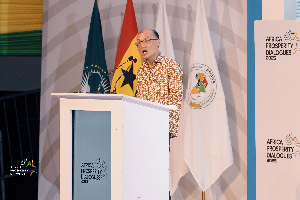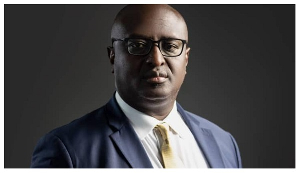While I respect Prof Gyampo's point of view on the Ghanaian Seventh-day Adventist Church's request to the Electoral Commission to review the statutory December 7 Election Day, it is critical to realize the delicate balance between individual rights and the common good. Constitutional development thrives when it accommodates differing opinions and interests, ensuring that all
individuals believe their rights are protected.
Considering alternate election dates to allow acceptable and unrestricted voting for all people is consistent with the ideals of justice and fairness,
minimizing unintended disenfranchisement due to religious observances. Such inclusivity does not undermine the secular foundation of the state. Instead, it enhances the social contract by emphasizing that the constitution serves all citizens and favors peaceful coexistence over factionalism. Changing election dates can be viewed as an evolutionary stage in constitutional growth, fostering a society in which everyone's input is valued.
When digging deeper into this subject, it is critical to emphasize the fundamental concepts of justice and fairness that underpin a democratic society. Prof Gyampo's argument that voting should remain an individual choice is consistent with the fundamental principles of personal liberty, but it is also imperative to consider the broader consequences of such a stance in the context of constitutional progress.
The concept of a secular nation involves the separation of religious institutions from the state, thereby providing a neutral ground for citizens of many religions. This neutrality, however, should not prevent the state from accommodating its citizens' religious needs within the framework of
constitutional principles, nor should it be interpreted as a justification for dismissing the legitimate concerns of specific religious groups, such as the Adventist Church.
Constitutional development is a dynamic process that responds to the changing demands and values of society. In this sense, adopting alternative election dates to respect religious observances is not a weakening of secularism, but rather an example of a constitution that adapts to its people's cultural and religious diversity.
By exploring changes to the election calendar, we reflect our society's pluralism while also creating a climate in which citizens feel valued and included. Prof Gyampo's concern about a cascade of religious demands is understandable, but each proposal must be considered on its merits. The
instance of the Seventh-day Adventist Church does not necessarily establish a precedent for other religious groups to impose election dates. Instead, it encourages a careful evaluation of each circumstance to achieve a balance between individual rights and collective interests.
Contrary to the concern about opening the floodgates, previous examples show that accommodation can be approached wisely. For example, Ghana has not only included religious holidays in its extensive list of statutory holidays but has also begun sponsoring the construction of a cathedral, as well as assisting pilgrimages such as the Hajj for Muslims and visits to the Holy Lands for Christians. These assistances do not endorse religion but rather acknowledge the cultural and historical value of these traditions for some portions of Ghana's people.
These gestures show a dedication to inclusivity rather than encouraging religious factionalism. Clearly, prior contacts between religion and the state demonstrate that such accommodations do not imply an unlimited growth of demands. Each request should be examined on its merits, taking into account the
potential influence on the democratic process as well as the overall principles of justice and fairness in achieving the common good.
In the broader international context, common law countries such as Australia, Canada, the United Kingdom, and the US have wrestled with religious freedom and electoral procedures. Their experiences provide important insights on balancing individual rights with the common good for Ghana's budding democracy. Instead of dismissing legitimate concerns, such as those of the Adventist Church, on the simplistic basis that some imaginary closed floodgates could be opened, Ghana can use insights from these advanced democratic countries to pragmatically navigate this delicate balance between electoral processes and religious freedoms, resulting in a society in which inclusivity strengthens the democratic fabric without the proliferation of unwarranted demands.
Recognizing a society's diversity and adjusting constitutional provisions accordingly is not a departure from secularism, but rather a transformation that reflects the dynamic nature of a true democratic government. Embracing inclusivity strengthens the social contract that connects citizens to their constitution.
This contract should be flexible, adapting to changing perceptions of justice and fairness. Rather than creating uncertainty or factionalism, a responsive constitution enhances the bonds of unity by ensuring that all citizens' justifiable interests, beliefs, and practices are taken into account in the
governance framework.
Ghana's constitutional development should be viewed as a dynamic document that adapts to the changing requirements of its population. By adopting inclusivity within the framework of justice and fairness, the country strengthens its social contract and supports the notion that its constitution exists for everyone. Rather than opening the floodgates, this strategy guarantees that concessions
are made wisely, encouraging unity in diversity while preserving democratic and secular state ideals.
Opinions of Tuesday, 30 January 2024
Columnist: Professor Daniel Dei



















